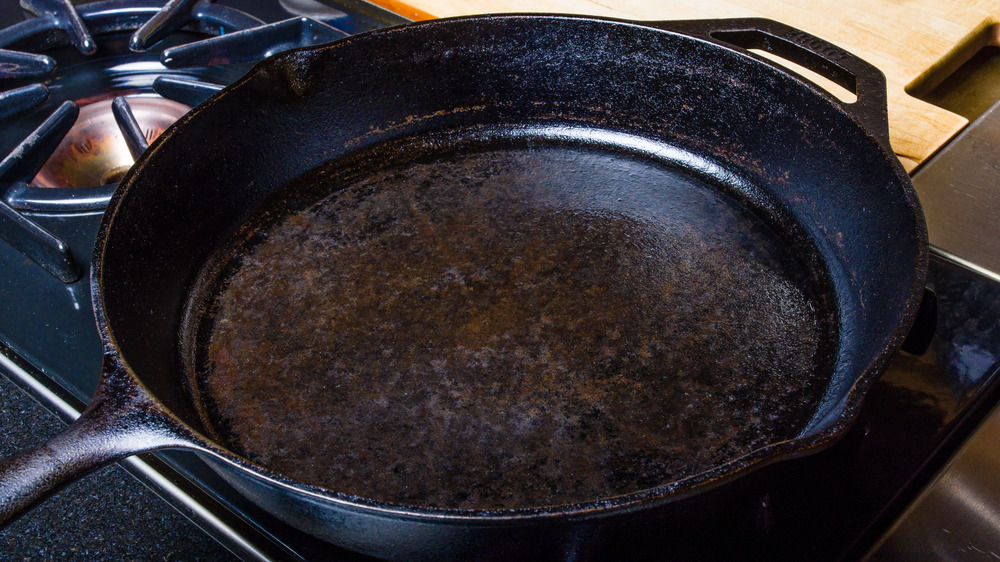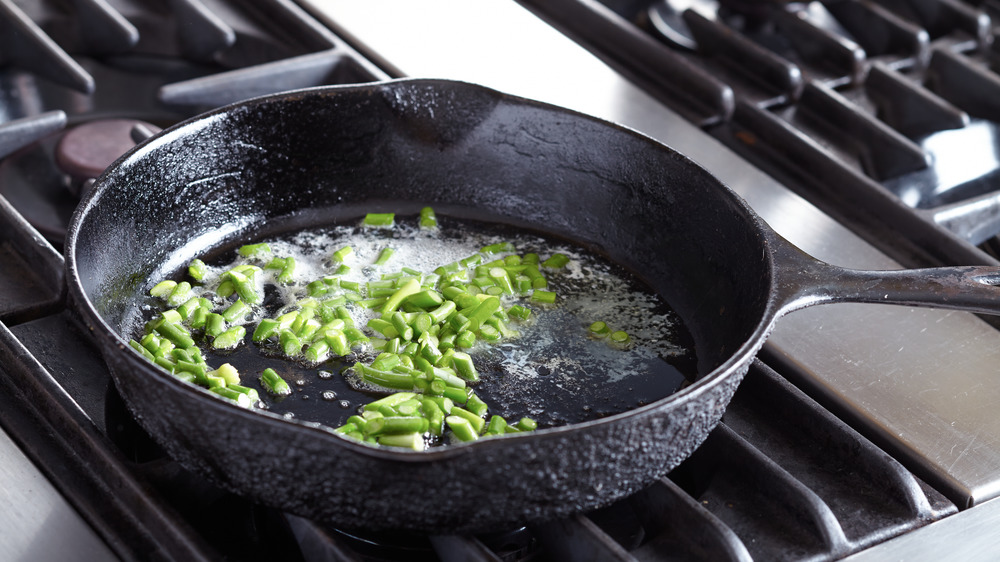Why You Should Think Twice About Seasoning A Cast Iron Skillet With Olive Oil
There's more than one reason why people are so obsessed with their cast iron cookware. Cast iron conducts heat more evenly than other types of pans, is virtually indestructible, and can be used to make almost any dish, from biscuits to steak. Not only that, but cast iron cookware also has a natural non-stick finish, so you don't have to use as much oil in your cooking (i.e. it's healthier), per Epicurious.
Everyone who has ever owned a cast iron skillet knows that there's one big rule you must follow: Always season your skillet regularly. The seasoning process involves coating your pan in a thin layer of oil, which prevents it from rusting and helps it last longer. While you can use almost any type of oil, some are better than others — and some are worse. Take olive oil, for instance. Here's why you probably shouldn't season your cast iron cookware with olive oil.
Olive oil wears off cast iron faster than other oils
Olive oil might be a go-to for cooking, but it isn't so great for seasoning a cast iron skillet. This is due to its lower smoking point, which is between 325 and 375 degrees Fahrenheit, according to World of Pans. That's low compared to other oils like grapeseed oil, which has a smoke point of 420 degrees, for instance (via NBC News). While olive oil will season your pan at first, once you start cooking with it, if you heat the skillet to higher than its smoke point, the oil will start to degrade. Over time, it will wear off faster than other types of oil, leaving your cast iron unprotected and causing food to stick or burn.
So if you shouldn't use olive oil on cast iron, what should you use? Popular cast iron brand Lodge recommends vegetable oil, canola oil, or even melted shortening. All of the above have higher smoke points and thus will keep your skillet seasoned for longer.

